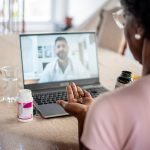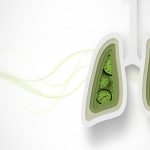-
Advocacy After Loss
Following her son’s death from peripheral T-cell lymphoma, Sandy McHugh keeps his memory alive through Jake’s Dragon Foundation.
by Thomas Celona
-
Telehealth Palliative Care Provides the Same Benefits as In-person Care
Researchers hope effective telehealth will increase access to palliative care for more cancer patients.
by Taneia Surles
-
Living With Your Loved One’s Prostate Cancer
Christine Ledbetter on the ways her husband’s prostate cancer affected their relationship and finding support as a caregiver.
by Christine Ledbetter
-
Immunotherapy Drug Tarlatamab Approved for Advanced Small Cell Lung Cancer
The drug showed promise in treating small cell lung cancer that had progressed during or after chemotherapy.
by Laura Gesualdi-Gilmore
-
Self-collection Broadens Access to HPV Screening
FDA approval allows patients to collect samples for HPV test, lowering a barrier to an important cancer prevention tool.
by Taneia Surles
-
Facts and Stats
From Lab Experiment to Lifesaving TreatmentDecades of research and clinical trials led to CAR T-cell therapy becoming a critical blood cancer treatment.
by Thomas Celona
-
Q&A
A Life RearrangedBone cancer and facial reconstruction surgeries redefined former opera singer Kathleen Watt’s relationship with her body.
by Ashley P. Taylor
-
Healthy Habits
Easy as BeansColorectal cancer survivors who added beans to their diets experienced improved gut health.
by Anne Danahy
-
Extending Remissions in Lung Cancer
Immune checkpoint inhibitors are effective against non-small cell lung cancer in some patients. Researchers are investigating who benefits from the drugs and when they should be administered for maximum impact.
by Natalie Slivinski
-
Survivor Profile
Being Proactive About Prostate CancerBrian Jones applies lessons he has learned to help other Black men facing the disease.
by Suzanne McBride
Cancer Talk
Lessons From 20 Years Living With Cancer
Multiple myeloma survivor Jonathan Gluck reflects on uncertainty, and the scientific progress that has kept him living with cancer for more than two decades.
by Eric Fitzsimmons
The Enduring Importance of Cancer Disparities ResearchOpening session from AACR conference highlights how perseverance and adversity have informed cancer disparities research over the years.
by Eric Fitzsimmons
Most Cancer Survivors Don’t Meet Healthy Diet GoalsDespite research linking fruits and vegetables to cancer survival, many people do not change their eating habits after diagnosis.
by Darlene Dobkowski
Many People Don’t Get Colonoscopy After Receiving Abnormal Blood TestsAbout half of people who receive abnormal results from colorectal cancer screening tests don’t follow up with a colonoscopy.
by Laura Gesualdi Gilmore















